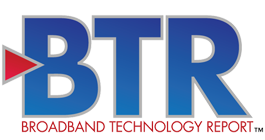- Research
- Research Memberships
- Smart Home
- Visibility Memberships
- Consumer Electronics and Entertainment
- Consulting
- Broadband and Mobility
- Primary Research
- Connected Health and Wellness
- MDU / Multifamily
- SMB
- Events
- Event
- Company
- About Parks Associates
- Consumer Electronics and Entertainment
- Consumer Electronics Devices
- Video Services: OTT, Pay TV
- Entertainment Content: Video, Audio, Gaming
-
Research
Smart Home
Smart Home Devices, Automation, Controls
Residential Security
Energy Management
Consumer Electronics and Entertainment
Consumer Electronics Devices
Video Services: OTT, Pay TV
Entertainment Content: Video, Audio, Gaming
Broadband and Mobility
Mobility
Wi-Fi and Home Networking
Support Services
Connected Health and Wellness
Wellness and Fitness
Independent Living
Telehealth
- Events
- White Papers
- Newsroom
- Company
- Consulting
- Contact Us

 According to Parks Associates, 50% of U.S. broadband households surveyed consider $20 or more per month for a comprehensive smart home service to be a good value. More than 26 million U.S. households own at least one smart home device, which represents a 35% increase from the beginning of 2016. However, privacy concerns remain a barrier to wider adoption.
According to Parks Associates, 50% of U.S. broadband households surveyed consider $20 or more per month for a comprehensive smart home service to be a good value. More than 26 million U.S. households own at least one smart home device, which represents a 35% increase from the beginning of 2016. However, privacy concerns remain a barrier to wider adoption.